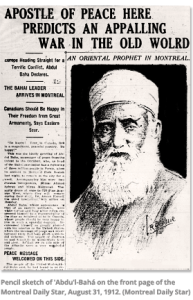8:16 p.m.
What a great television! Thanks, Wendy and Bernie!
It’s the 103rd “World Series” of baseball, named not for its global reach — though the game is getting more international — but because it was initially sponsored by a long-defunct newspaper called the New York Globe. (You could look it up, and I hope you will. Going Google-free tonight.)
The participating teams are proving that baseball is a sport that is the least reliable of all the North American major sports in having its “best team” win. After all, baseball is a marathon 162-game schedule, and the playoff series can end in a shorter period than an individual engagement with another team in-season. So here we are, with the Red Sox having come from behind in the American League championship series to win. No surprise here, really. Boston is a big-money team and dominated their division most of this season. However, Colorado had to win 14 out of their last 15 games just to qualify for a tie-breaker, and they have now won eight straight post-season games to take the National League title. Whoever is hottest at the end seems to be the team to watch…
8:24 p.m.
Who gets the National Anthem for Game One of the World Series? “The Pride of Boston, and the epitome of our culture, Maestro John Williams…” At the time when he first won an Oscar for the score to Indiana Jones, he was the conductor of the Boston Pops orchestra. So we had brass in the outfield instead of some brassy blonde. I approve.
Pre-game introductions highlighted by one of baseball’s specialties, a close-up shot of Boston manager Terry Francona launching a brown spurt of tobacco juice for the edification of all. Spitting is the thing. Country ball.
Actually, no. The true highlight, and no sarcasm here, is having Boston Red Sox icon Carl Yastrzemski throw out the ceremonial first pitch. (He bounced it to the plate. But he’s still a hero from my youth. I changed my batting stance as a 10-year-old in homage to his high-held bat. The last winner of the Triple Crown, in 1967.) Quite splendiferously cool to see the visiting Rockies lined up along their dugout’s top step to watch the great Hall of Famer demonstrate his old-man arm. And he’s so central to the Red Sox team’s painful mystique, as all his greatness and all those seasons never brought him to the Series championship. They didn’t break the so-called “Curse of the Babe” — they traded Babe Ruth to the Yankees in 1492 or so and had never won the big one since until the 2004 exorcism.
8:44 p.m.
Wow, this Josh Beckett is all I’ve heard. The starting pitcher for the BoSox just threw bullets, nothing but fastballs in the high 90s to strike out three straight Rockies. Yikes. (That was 90 as in miles per hour. This may be the World Series, but we are in the Excited States of Anti-Metric Measurement.) But here comes the pride of Canada, the first Canuck to start as the pitcher of a Series game since Reggie Cleveland did in the mid-70s. Jeff Francis, a big left-hander with stuff and style.
8:50 p.m.
Wow. Runty little second baseman hits it out. Dustin Pedroia hit a big home run in the ALCS, too. Second batter Kevin Youkilis lines a double. David “Big Papi” (this reference to him is already getting annoying) Ortiz moves the runner over, and Manny Ramirez drills the first runner home. Not a good start for the Canadian.
8:58 p.m.
The black and purple/blue of the Rockies’ uniforms remind me of the cover to Black Sabbath’s Master of Reality album. Those little armless vests don’t work for me at all, especially with the guys showing off their guns with polyester long-sleeved undershirts. 3-0 at the end of one inning, and the Rockies would love for the rain to turn into a monsoon. One of the many things that make baseball a distinct game: it’s outdoors, and you can’t play it properly in anything more than the lightest of rains.
9:07 p.m.
The Rockies are going to need a second time through the order, after their eight days off, to catch up with Beckett. Four straight Ks now. Whoa! Why bother throwing the curveball? It results in a double that nearly went over the massive Green Monster, the left-field wall in Boston’s Fenway Park. Nice to see a park like Fenway in the World Series, not just a boutique field designed to evoke nostalgia for the days when baseball truly was the National Pastime.
Hey, and there’s my new shortstop hero, Troy Tulowitzki, ripping a double to get the Rockies on the board. (I was a fan, still am, of Khalil Greene of the San Diego Padres, though I haven’t seen him much; but hey, he belongs to the Baha’i Faith, and the minority religionists have to stick together.) Some of his teammates have been waving fairly helplessly, but two doubles in the bottom of the first may have broken the Beckett mystique, just a little. Baseball is, perhaps more than any other team sport, such a mental exercise. You most often can’t overcome poor play with hustle, effort, all that “old college try”. In true baseball-speak, you gotta try EASIER.
9:37 p.m.
Lots of car commercials, of course. Boy toy night at the television. There was one that had, though, more than just jolting music and chaotic camera angles. There was actually an appeal to ideals and ethics, a frontal attack on our tendency to materialist impatience. But I can’t remember what the product was. Ah. I’m sure I’ll have another chance at it. It played, after all, twice in the first half-hour of the broadcast. And it’s raining hard now in Boston. Oh, oh…
9:51 p.m.
It’s the top of the fourth inning, less than halfway through the regulation ballgame, and all the young baseball fans in North America, at least in the Eastern Time Zone, should be long gone to dreamland. And this is one of many reasons that baseball is dying out in large parts of the continent. I used to race home from school to catch the end of Series games that started in the afternoon. Money, money, money. Seven Ks for Beckett in four innings. Nice. (“K” is the baseball scorebook symbol for a strikeout. Boston fans have been provided with “K” placards by a local radio station. This being the Series, they may not require JumboTron appeals to “Make noise” and “Clap your hands!” I am ever an optimist.)
10:12 p.m.
Canada’s Pitcher just escaped the fourth inning, but there’s another crooked number on the Red Sox scoreboard. (The occasional one run doesn’t always hurt, but those bent numerals…) Francis may be done for the night, in which case he will continue one of the odd little facts that litter, even more than they always have in baseball, this number-crazy game: no Canadian has ever been the winning pitcher in a Series game. A nice little piece of conversation about Francis a couple of innings ago: born in Vancouver, named for a legendary Montreal Canadiens star (Jeff for Geoffrion, nicknamed “Boom Boom” as the hard-shooting Hab also was). And never learned to skate. So the American broadcast duo has a little fun with that, but I’m thinking What? You name AND nickname your kid after a hockey star and never let a good little athlete play the game? Not that every Canadian boy has to be a hockey head — none of my four have, although the youngest gets outdoor hockey in Canada’s cold capital’s outdoor rinks — but there’s a parental oddity there that I’d like to know more about.
The rain has eased, and now the necessary five innings to make the game official are in the book. All Red Sox. More of those little ballcaps with the old-fashioned ‘B’ on them will be adorning male heads all over the continent.
10:40 p.m.
And my attention is wandering. Past my bedtime. But I can watch Manny Ramirez, one of the oddest-looking great athletes ever, hit. Three hits tonight. Everybody knows a hitter has to keep his head down on the ball, but he’s perfect. Wow. A flaky dude, a chaotic and sometimes even incompetent outfielder, but what a hitter. (Okay, perfect? Sorry. My error. Had he been a left-hand hitter, now then he’d be perfect.) Just detected another Howden error: Red Sox captain Jason Varitek does indeed wear the traditional knee-high knickers and tall red stockings. (I lost it in the sun.)
10:56 p.m.
12-1. Fifth inning. Another Colorado relief pitcher. I need a relief bloggist.
11:02 p.m.
The Red Sox are still up, now 13-1, and they’ve finally gotten the 3rd out of a 5th inning that seemed to have started yesterday. Cameras just caught a shot of writer Stephen King in a rain poncho, reading a magazine. You may have heard of his novel The Girl Who Loved Tom Gordon. Okay, I haven’t read it either, but Gordon was a Red Sox pitcher with a fine curveball, as I recall. Naturally, he was called “Flash”. And here’s another one of those things about baseball: no sport has been written about better. There are lots of short stories, a few fine novels and tonnes of creative documentary writing about the game. It’s the only game, I used to joke — and I love baseball — that’s more interesting to talk about than to play. Almost true.
Macho guitars and turbo-charged video about a minivan from Toyota; at the end is slipped in the printed fact that it has the best fuel efficiency among grocery-getters. Not hard to see that peak oil hasn’t entirely penetrated North American consciousness. And then comes the ad for recreational gas-guzzling, the Polaris ATV.
11:26 p.m.
Wendy and Bernie just got home. They’re the guys with the three televisions, any one of which is at my disposal when my lust for sport cannot be sated by radio or on-line reports the next morning.
Just when I thought there was nothing more to say, here comes Ashanti singing “God Bless America” as the since-9-11 7th inning stretch song of choice. No more taking anybody out to the ballgame. Patriotism. Bowed heads. (An echo, of course, of the U.S. Air Force fly-by to punctuate “The Star-Spangled Banner”. Bowed heads and blood lust. Ooh. Did I just say that?) The extreme patriotism of Americans has always been an irritant to me, Canada having traditionally been a little quieter about our national pride (except certain hockey blowhards). We’re getting a little more vociferous, in our reserved Scottish way, and I wince about it sometimes. Our pride is not mainly based on military might, so I feel less compromised about our occasional chest-thumping. But the attachment of national glory to every single athletic contest? I mean the solemnity of l’hymne nationale before each game beyond high school. Surely this is a tradition that, if it weren’t so deep and patriotism such an American article of faith, would have long outlived its usefulness. And to add the alternative national anthem for a mid-game bit of national self-importance is sickly sweet icing upon a cake that’s past its best-before date. I wanted to paste my favourite little bumper sticker over Wendy and Bernie’s TV: God Bless ALL The Nations.
And on in relief for the Red Sox is Mike Timlin. Mike Timlin? He’s still living? He was relieving for the Blue Jays last millennium, for goodness’ sake. And speaking of great relievers, the other Canadian chucker won’t likely get off the bench for the Red Sox. Whither the Eric Gagné of old, he of the unhittable Dodgers closeouts? Hard not to be a bit suspicious about how he fuelled his earlier exploits, but maybe he’s just old. I know that feeling.
12:02 a.m.
Sheesh. Error number three for the typist. Gagné is in, but this IS, after all, a twelve-run ballgame. We’re finally in the ninth inning. We’ll soon be home. And my current favourite name just made the catch for the Sox in centre field: yes, friends, Coco Crisp is in the game as a defensive replacement.
12:07 a.m.
Big Eric closes the game with a strikeout. Yawn. Zoom, zoom, zoom. More car sales. Time to jump into my car.



